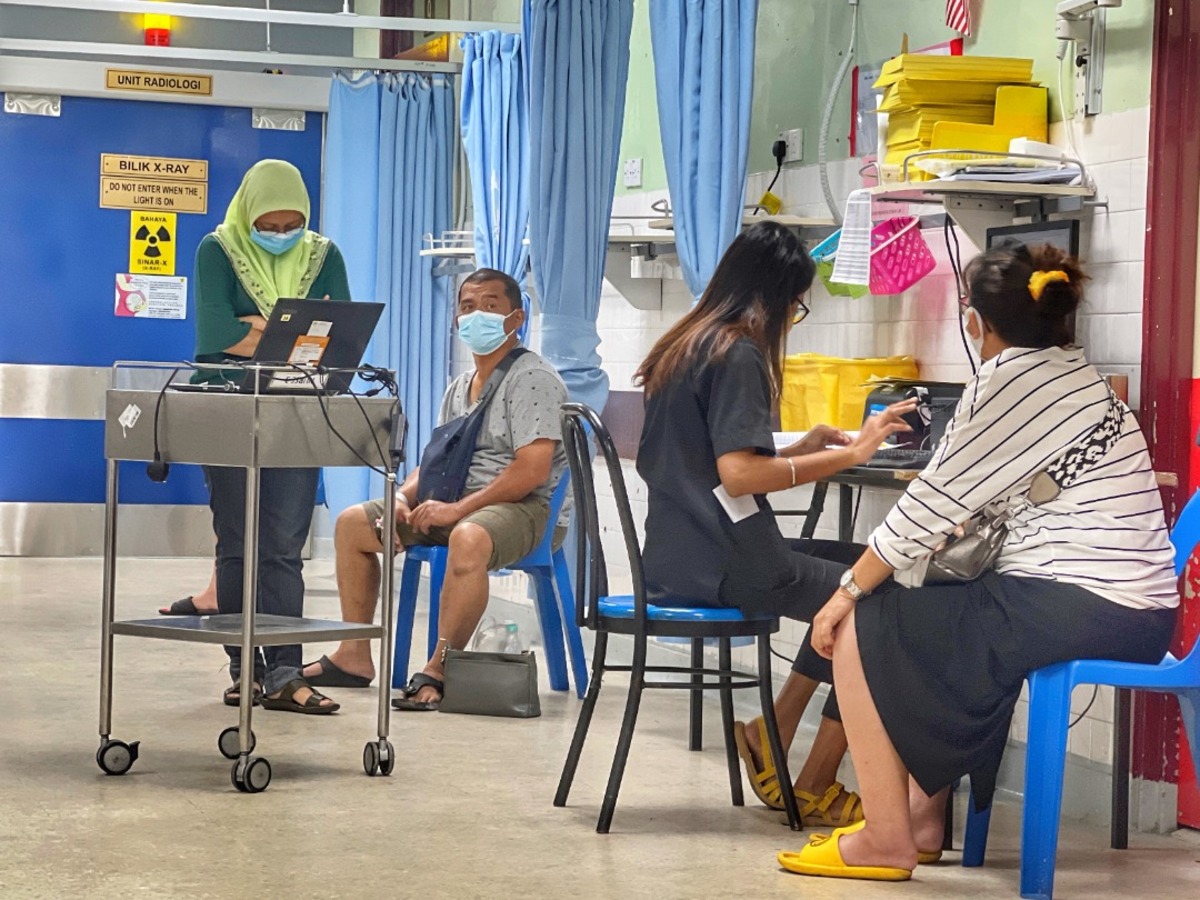Everyone is a patient or potential patient. Patients are at the centre of the health care delivery system.
They have the right to safe and quality health care of an appropriate standard that encompasses the traditional duty of care, i.e. reasonable care and skill, patient safety, and the minimisation of harm and coordinated care.
Health care today is more complex than that of yesteryear, and is provided by teams led of health care professionals led by doctors or dentists, and which comprise other professionals like nurses, pharmacists, and therapists.
The World Health Organization (WHO) pointed out in 2014 that globally, many patients experience neglectful, abusive, and disrespectful treatment, which violates their human rights and their right to care.
Such treatment infringes on the trust between patients and health care providers, and may deter patients from accessing health care services.
This will lead to negative impacts on patients’ health and wellbeing, and also on the health care delivery system. Disrespectful care may be institutionalised, unchallenged, or unrectified.
The dimensions of respect in health care include freedom from harm and mistreatment, preservation of patients’ dignity, maintenance of confidentiality, informed decision-making, engagement with effective communication, respecting patients’ choices, provision of efficient, effective, and continuous care, access to competent health care professionals, and family support.
Grievances
A patient’s navigation through the health care delivery system is potentially fraught with many challenges, especially when hospitalisation is involved. This is worse when patients or their caregivers have grievances.
Grievances can result from any stage in the patient’s journey through the health care delivery system, and is usually more likely to occur when there is an adverse event, i.e. if the patient is harmed.
Grievance procedures are rarely designed in a manner that is simple, accessible, and expeditious from the patient’s perspective. Patients may require support in navigating these procedures, particularly if an adverse event has occurred.
The common reasons for grievances are failings in clinical care and unprofessional staff attitudes. A poor explanation or an incomplete response are the common reasons for dissatisfaction with the way patients’ grievances had been handled in the first instance.
Poor grievance handling can render a difficult situation worse for patients and their caregivers, leading to escalation, creating unnecessary demands on human facilities and service resources.
The Private Healthcare Facilities and Services Act requires all private health care facilities to have a grievance mechanism. The Ministry of Health (MOH) has a mechanism to address patients’ grievances, which include inquiries.
However, as the participants in the MOH’s inquiries are its employees, it is not uncommon that patients and/or their caregivers have perceptions of conflicts of interest.
There is no national data on grievances addressed by public and private health care facilities, neither is there data on medical errors, which are a major cause of mortality and morbidity in developed countries.
All that is available are adverse incident reports from all MOH hospitals and clinics, 47.85 per cent of private hospitals, and none from private clinics. The incompleteness of such data hampers the formulation and implementation of specific policies and strategies to minimise harm and improve the quality of health care to patients, and also to monitor change.
Patients and/or their caregivers have complained to regulators, e.g. the MOH, Malaysian Medical Council, and Malaysian Dental Council; filed police reports, and taken the matter to the courts and the media.
A common refrain is that they would not have acted as such had an explanation been provided, and that they do not want another patient to suffer from their adverse event.
These actions by patients and/or their caregivers reflect their dissatisfaction with the current grievance mechanisms in the public and private health care facilities.
Health Ombudsman
Ombudsman was originally a Swedish term that meant “grievance person”. It was first used in 1809 when the Swedish Parliament established the office of Justitieombudsman, who was given the task of looking after citizens’ interests in their dealings with the government.
The system was taken up by other countries in the 20th century, so much so that there are currently ombudsmen in about 150 countries, according to the International Ombudsman Institute (IOI),
Every Ombudsman system has two basic functions, i.e. investigation and resolution of grievances suffered by individuals and improvement of public services through lessons learnt from the investigations undertaken, implementation of its recommendations, and monitoring to ensure the desired outcomes are attained.
The values of the various Health Ombudsman systems include the following:
- The health and safety of patients are of paramount importance.
- The Ombudsman’ actions are independent, impartial and in the public interest.
- Open and honest communication and sharing of information assists improvement in health care delivery.
- Transparency and accountability are the basis of grievance procedures.
- Fair and equitable treatment for patients and health care providers.
The roles of the various Health Ombudsman systems include the protection of the health and safety of the public, the promotion of high standards of health care delivery by health care facilities and services; promotion of professional, safe and competent practices by health care professionals, and the maintenance of public confidence in the management of health care grievances, safety, and quality in the delivery of health care services.
The Health Ombudsman systems function by receiving and investigating complaints about health care facilities, services and professionals; deciding the action to be taken, and, in certain instances, taking immediate actions to protect the safety of the public, monitoring the performance of regulators of health care professionals, providing information about minimising and resolution of health care grievances, reporting on the performance of its functions to the public and Parliament, and public naming of health care facilities in some countries.
Malaysia aspires to be a developed country. The coalitions in the current government have acknowledged, directly or indirectly, that the public health care delivery system is broken, and have included various health care reform measures in their manifestos.
With the current global focus on patients’ rights and the need for improvements in health care delivery, it is timely for the government to establish a Health Ombudsman system which shall safeguard patients’ needs, interests, and legal rights, evaluate the cost-effectiveness of health care services, and improve the safety and quality of health care facilities and services.

Dr Milton Lum is a Past President of the Federation of Private Medical Associations, Malaysia and the Malaysian Medical Association. This article is not intended to replace, dictate or define evaluation by a qualified doctor. The views expressed do not represent that of any organisation the writer is associated with.
- This is the personal opinion of the writer or publication and does not necessarily represent the views of CodeBlue.








